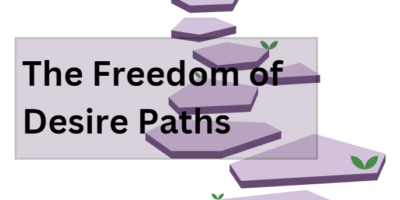There is now an abundance of books with happiness in their title, from self-help to Buddhism, positive psychology to cultural studies. Listed below are the general findings I found in some of the more legitimate and popular sources regarding the new happiness revolution. To put everything in a single sentence, remember this: although happiness can be complicated, there are many reasons why we are not happy, and those reasons are simple.
You Think Too Much, and Do Too Little
(The Happiness Project by Gretchen Rubin)
Happiness is a matter of doing, a summation of many little things which all affect your well-being. During the span of one year, Rubin documents her journey of applying real life activities and resolutions to lead a happier life. There is no dramatic shift in thinking; instead, she simply sets out on making small daily changes, such as tidying, making a gratitude journal, listening to her children, or indulging in a modest splurge. She came out happier, without overhauling everything she believed in.
You Haven’t Eliminated the Negatives, Nor Do You Practice Compassion
(The Art of Happiness by the Dalai Lama and Howard Cutler)
This is a timeless classic blending the teachings of Buddhism (where happiness is the meaning of life) and psychiatry (from the viewpoint of Cutler). The Dalai Lama talks about training the mind, cultivating positive mental states, and challenging the negatives. The practice of compassion, for example, is a positive mental state. He defines this as non-violent and non-aggressive thinking in addition to wishing for others to be free of suffering. His spiritual teachings agree with modern findings in psychology; in fact, meditation is now a feature in most first-year textbooks.
You Mis-Imagine Happiness in the Future
(Stumbling on Happiness by Daniel Gilbert)
Daniel Gilbert is a psychology professor at Harvard. This book is based on cognitive psychology research but presented in layman’s terms. He outlines three reasons why we fail to imagine the future and are unable predict whether we are happy in that future.
1) Your brain fills in the blanks of details you don’t consider. 2) Your present mood greatly affects any prediction you make. 3) Things will feel different once they happen, but you don’t know that now. Practically, Gilbert offers convincing studies on our inabilities to predict future emotions with any accuracy, but we still do it anyway.
You’re not British Enough
(America the Anxious by Ruth Whippman)
This is a book published just last week which offers an even more profound look on how western society, Americans in particular, perceives happiness. Simply put, Americans make happiness a trophy on a pedestal whereas Whippman (being a proud Brit) was raised in the “armchair of cynicism.” She argues that the more people see happiness as a goal, the less happy they are. There is, of course, research from Berkeley to support this: stronger personal ambition for happiness correlated to higher dissatisfaction with life and even depression.
Correlation is not causation, so a second study was developed; subjects were primed on the importance of happiness and then they watched a happy film. Compared to the control group, who read nothing and just watched the film, the primed group actually found less happiness in the film. America—the happiness-seeking culture—has not gotten happier; since the 70s, a consistent 30% consider themselves as “very happy” but a rising amount (almost a third now) report anxiety. Perhaps this happiness revolution is part of the problem itself.




Leave a Reply